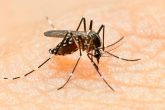
Did you know that Malaria is the cause of death in one out of every ten women who die from pregnancy-related conditions?
Startling as that may sound, when you tally the numbers, it’s even more shocking. Malaria is responsible for the death of about 16,000 women yearly – the equivalent of 106 medium-sized plane crashes every year!
The sad part of all this is that these deaths can be easily prevented through the use of simple methods that have been shown to work to prevent malaria in pregnancy.
- Regular use of Insecticide Treated Nets by pregnant women
- Intermittent preventive treatment, with Sulfadoxine Pyrimethamine, (same drug as Fansidar) during the 4th, 5th, and 6th month of pregnancy
These are vital tools in the fight against malaria among pregnant women in endemic areas of Sub-Saharan Africa.
Pregnant women are highly vulnerable to malaria because of the natural reduced immunity that occurs during pregnancy. Preventing malaria in pregnancy is critical because it poses a danger not only to the woman but to the unborn child as well. The malaria parasite infects the placenta and is also transmitted to the fetus. Miscarriage, late term fetal death, prematurity, and poor growth of the fetus (intrauterine growth retardation), are potential hazards to the fetus as a result of malaria.
If prevention is that simple why are pregnant women still dying from malaria?
Poor understanding of health, including causes of disease, prevention methods, danger signs and appropriate treatment is at the root of the problem. Greater effort has to be made to educate women and communities regarding the importance of antenatal care. In many communities, antenatal care is usually the first contact opportunity for a woman to connect with health services, giving her an entry point for coordinated care. Exposure to antenatal care promotes healthy home practices, influences good care- seeking behaviors, and links women with pregnancy complications to better care.
The new WHO recommendation is to have Intermittent preventive treatment at each scheduled antenatal visit after the first 3 months of pregnancy. A woman receiving antenatal care is more likely to get malaria preventive treatment than one who isn’t receiving antenatal care.
If you or someone you know is pregnant, it’s important to register for antenatal care as soon as possible. It’s also a good idea to ask your healthcare provider at the clinic or hospital about malaria preventive treatment. Lastly, use a bed net, it works!!

